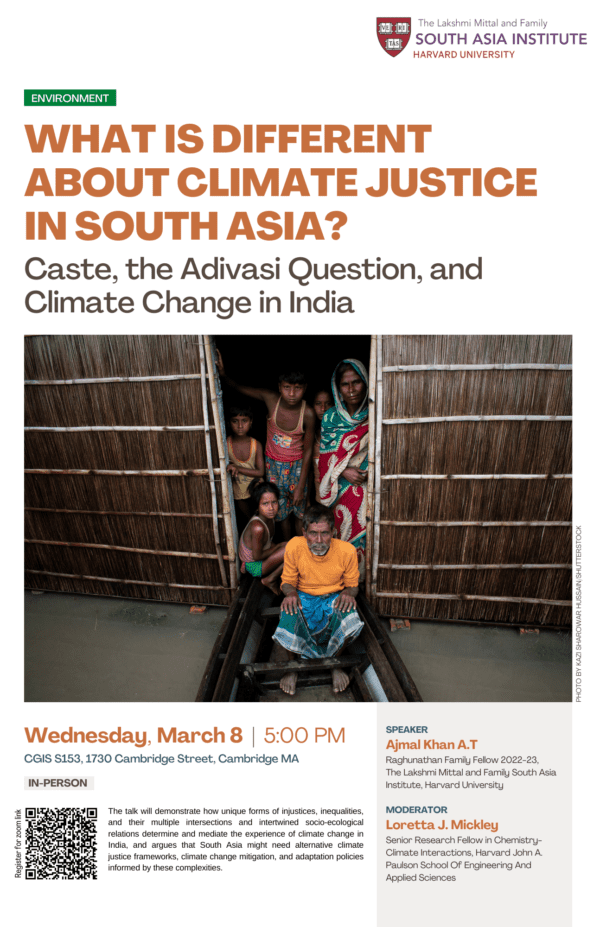Globally, climate justice has emerged as a major framework acknowledging the disproportionate burden experienced by the countries and communities that are least responsible for anthropogenic climate change. However, climate justice within countries that are the most unequal societies in the world such as India has not yet gained enough attention in climate change scholarship and policy. This presentation looks at climate justice within India considering caste and the Adivasi identity as two central socio-ecological hierarchies in the sub-continent. Based on the ethnographic fieldwork conducted by the speaker among the Adivasi and Dalit farmers in the world’s largest area of mangrove forests in the Bay of Bengal, Sundarbans, and the Kuttanad delta region in South India, the talk highlight the limits of the universal frameworks of climate justice in South Asia. The talk will demonstrate how unique forms of injustices, inequalities, and their multiple intersections and intertwined socio-ecological relations determine and mediate the experience of climate change in India, and argues that South Asia might need alternative climate justice frameworks, climate change mitigation, and adaptation policies informed by these complexities.
Speaker:
Ajmal Khan A.T is an interdisciplinary scholar of the environment, economic development, and climate change. His research is located at the intersection of development, environmental, and climate justice. In particular, his research analyzes democratic and justice challenges in the context of state led development, environmental change, and anthropogenic climate change in South Asia.
Ajmal Khan A.T is the Raghunathan Family Fellow at the Mittal Institute during the 2022-23 academic year.
Moderator:

